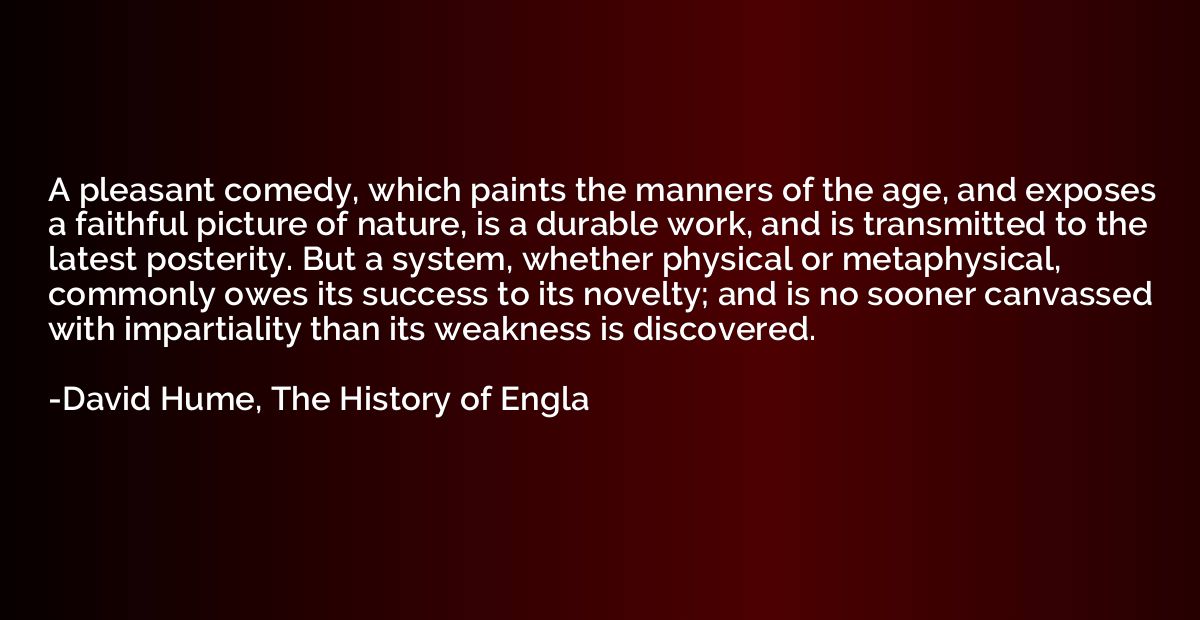Quote by David Hume, The History of Engla
A pleasant comedy, which paints the manners of the age, and exposes a faithful picture of nature, is a durable work, and is transmitted to the latest posterity. But a system, whether physical or metaphysical, commonly owes its success to its novelty; and is no sooner canvassed with impartiality than its weakness is discovered.

Summary
This quote highlights the contrast between the lasting impact of a pleasant comedy that reflects the reality of its time and the temporary success of a new system, be it in the realm of science or philosophy. The quote suggests that a comedy that accurately portrays the manners and nature of its era will be cherished and passed down through generations. In contrast, a novel scientific or philosophical system may captivate initially due to its novelty but will soon reveal its inherent flaws and weaknesses when examined without bias.














